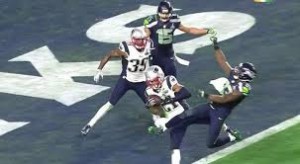Three Decision Philosophies

I’ll use the rational, logical approach for this one.
In my critical thinking classes, students get a good dose of heuristics and biases and how they affect the quality of our decisions. Daniel Kahneman and Amos Tversky popularized the notion that we should look at how people actually make decisions as opposed to how they should make decisions if they were perfectly rational.
Most of our decision-making heuristics (or rules of thumb) work most of the time but when they go wrong, they do so in predictable and consistent ways. For instance, we’re not naturally good at judging risk. We tend to overestimate the risk of vividly scary events and underestimate the risk of humdrum, everyday problems. If we’re aware of these biases, we can account for them in our thinking and, perhaps, correct them.
Finding that our economic decisions are often irrational rather than rational has created a whole new field, generally known as behavioral economics. The field ties together concepts as diverse as the availability bias, the endowment effect, the confirmation bias, overconfidence, and hedonic adaptation to explain how people actually make decisions. Though it’s called economics, the basis is psychology.
So does this mean that traditional, rational, statistical, academic decision-making is dead? Well, not so fast. According Justin Fox’s article in a recent issue of Harvard Business Review, there are at least three philosophies of decision-making and each has its place.
Fox acknowledges that, “The Kahneman-Tversky heuristics-and-biases approach has the upper hand right now, both in academia and in the public mind.” But that doesn’t mean that it’s the only game in town.
The traditional, rational, tree-structured logic of formal decision analysis hasn’t gone away. Created by Ronald Howard, Howard Raiffa, and Ward Edwards, Fox argues that the classic approach is best suited to making “Big decisions with long investment horizons and reliable data [as in] oil, gas, and pharma.” Fox notes that Chevron is a major practitioner of the art and that Nate Silver, famous for accurately predicting the elections of 2012, was using a Bayesian variant of the basic approach.
And what about non-rational heuristics that actually do work well? Let’s say, for instance, that you want to rationally allocate your retirement savings across N different investment options. Investing evenly in each of the N funds is typically just as good as any other approach. Know as the 1/N approach, it’s a simple heuristic that leads to good results. Similarly, in choosing between two options, selecting the one you’re more familiar with usually creates results that are no worse than any other approach – and does so more quickly and at much lower cost.
Fox calls this the “effective heuristics” approach or, more simply, the gut-feel approach. Fox suggests that this is most effective, “In predictable situations with opportunities for learning, [such as] firefighting, flying, and sports.” When you have plenty of practice in a predictable situation, your intuition can serve you well. In fact, I’d suggest that the famous (or infamous) interception at the goal line in this year’s Super Bowl resulted from exactly this kind of thinking.
And where does the heuristics-and-biases model fit best? According to Fox, it helps us to “Design better institutions, warn ourselves away from dumb mistakes, and better understand the priorities of others.”
So, we have three philosophies of decision-making and each has its place in the sun. I like the heuristics-and-biases approach because I like to understand how people actually behave. Having read Fox, though, I’ll be sure to add more on the other two philosophies in upcoming classes.
Good Decisions, Bad Outcomes

Bad Decision or Bad Outcome?
The New England Patriots won the Super Bowl because their opponents, the Seattle Seahawks, made a bad decision. That’s what millions of sports fans in the United States believe this week.
But was it a bad decision or merely a bad outcome? We often evaluate whether a decision was good or bad based on the result. But Ronald Howard, the father of decision analysis, says that you need to separate the two. You can only judge whether a decision was good or bad by studying how the decision was made.
Howard writes that the outcome has nothing to do with the quality of the decision process. A good decision can yield a good result or a bad result. Similarly, a bad decision can generate a good or bad outcome. Don’t assume that the decision causes the result. It’s not so simple. Something entirely random or unforeseen can turn a good decision into a bad result or vice versa.
But, as my boss used to say, we only care about results. So why bother to study the decision process? We should study only what counts – the result of the process, not the process itself.
Well, … not so fast. Let’s say we make a decision based entirely on emotion and gut feel. Let’s also assume that things turn out just great. Did we make a good decision? Maybe. Or maybe we just got lucky.
During the penny stock market boom in Denver, I decided to invest $500 in a wildcat oil company whose stock was selling for ten cents a share. In two weeks, the stock tripled to 31 cents per share. I had turned my $500 stake into $1,500. I was a genius! (There’s a touch of confirmation bias here).
What’s wrong with this story? I assumed that I had made a good decision because I got a good outcome. I must be smart. But, really, I was just lucky. And you probably know the rest of the story. Assuming that I was a smart stock picker, I re-invested the $1,500 and – over the next six months – lost it all.
Today, when I evaluate stocks with the aim of buying something, I repeat a little mantra: “I am not a genius. I am not a genius.” It creates a much better decision process.
I was lucky and got a good outcome from a bad decision process. The Seattle Seahawks, on the other hand, got the opposite. From what I’ve read, they had a good process and made a good decision. They got a horrendous result. Even though their fans will vilify the Seahawks’ coaches, I wouldn’t change their decision process.
And that’s the point here. If you want good decisions, study the decision process and ignore the outcome. You’ll get better processes and better decisions. In the long run, that will tilt the odds in your favor. Chance favors the thoughtful decision maker.
What makes for a good decision process? I’ll write more about that in the coming weeks. In the meantime, you might like two video clips from Roch Pararye, a professor at the University of Pennsylvania, who explains why we separate decision processes from decision results. (Click here and here).